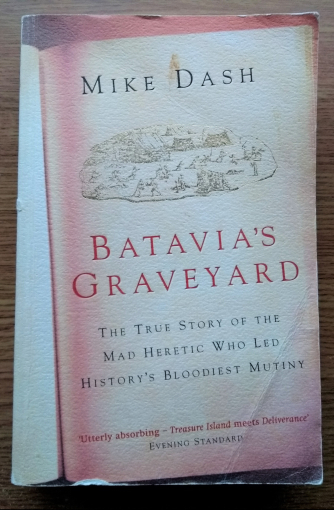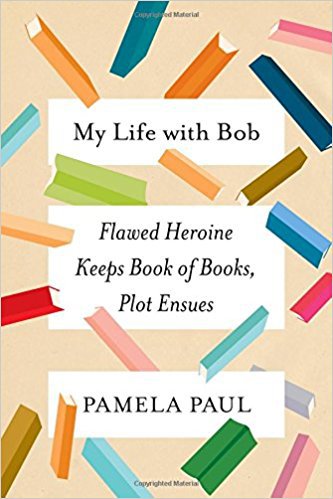
Read 12/04/2017-15/04/2017
Rating: 2.5 stars
Read for the Reader’s Room March Madness Challenge
I didn’t enjoy this book. I was looking forward to it, because I’d enjoyed Brooklyn and Nora Webster is set in the same town, Enniscorthy, that Elly Lacey leaves for Brooklyn. I had no patience with the title character in this companion piece.
There was something lackluster about the writing, almost as though Tóibín was too familiar with the characters and setting, and couldn’t be bothered injecting any passion into the narrative. It felt too safe, steadily going along, describing one woman’s life in the aftermath of her husband’s death. I found my mind wandering as I read.
Tóibín writes about the mundanities of Nora’s life with languor. Nora didn’t seem a very warm or likeable character in the first two chapters. She seemed emotionally paralysed and self-absorbed. I suppose that was the grief, although Tóibín doesn’t give the reader any external perspective on Nora’s state of mind, and Nora doesn’t give much away, either. I found the way in which she spoke to her children and made decisions without taking them properly into account difficult. I suppose Tóibín is true in this to parenting in the late 1960s. It’s what parents did back then. They made the decisions and children’s wishes didn’t really come into it. Her remoteness from her eldest daughter, as well, made her a hard character for me to sympathise with. In the book their encounter over tea in Bewley’s in Dublin is described as being as though they are strangers. Nora seems to have no concept of other people’s grief.
Something changed with the visit of Nora’s aunt, Josie. I began to understand Nora a little better. I still didn’t fully like her, but Tóibín shows her to be an intelligent woman, with her own mind and her own way of doing things, and I started to feel something other than apathy for her. The passage where Tóibín describes Nora’s husband’s final illness made me well up. I was on a bus as well. It was the description of Maurice being out of it, his hands like claws grasping for contact, not recognising the people around him. It made me think of my mum’s horrible decline. Cheers, for that, Colm. When Nora reflects on the way her mother couldn’t afford to keep her in school when Nora’s father died, which meant she lost her chance to go to university, I felt a little more sympathetic towards her. Her only escape from working life was to marry well. Sometimes, with the way things are going with the education system in the UK, it feels as though we’re heading back to times like that, where only the wealthy get to enjoy the benefits of education, in terms of liberation and professional advancement.
On the positive side, Tóibín captures well the sense of solitude in grief, and the companionship that comes from sharing the load in caring for someone who is terminally ill, which makes communicating afterwards slightly easier. You don’t have to explain the context to the person you shared the experience with. Or at least, you don’t feel obliged to. To illustrate this, the book contrasts Nora’s comfortable relationship with her sister- & brother-in-law, who were with her while Maurice was dying, and the more strained one she has with each of her sisters, but especially Catherine. Nora and her sisters are not close. They don’t socialise often and don’t share details of their lives easily. It appears that Nora is the source of this lack of closeness. Catherine and Una seem closer as a pair.
Over the next few years following Maurice’s death, Nora begins to build a new existence as a single working mother, juggling work with looking after her two youngest children who are still at home. They start to spend Sunday evenings watching the late film together, creating a different bond, but they still don’t communicate very well. Nora seems to be waking up to the fact that her sons are people too, more than just bodies that she’s responsible for.
The languor of mundanity at the start of the novel changes to a more elliptical languor, sometimes coming into close focus as Nora vaguely discovers something internally or makes a change externally, more often out in a wider orbit as she drifts along reacting to things in the moment. There is a steeliness to Nora’s character, though. She has a resolve, once she knows what she thinks about something.
At times, I could identify with Nora, through her introversion that manifests as a need for solitude, a love of curling up with a book, and a technique of going for long walks on her own to clear her head. I didn’t understand how she could have such a lack of awareness about her own children, though, especially around how their father’s death might have impacted on them. I didn’t like what I saw as selfishness.
There were a few mildly humorous moments in the book. At the local firm where Nora takes a job, Miss Kavanagh’s longstanding ill-feeling towards her brought a wry smile in the way it played out. The way everybody knows everyone else’s business in the small town where Nora lives, apart from Nora herself because she doesn’t properly speak to anyone else, was also mildly funny.
As background to the ins and outs of daily life, Tóibín refers to the moon landing of 1969 and the escalation of the Troubles in 1972. These become focal points for the family, moments when they gather together, and yet Tóibín doesn’t really get across the impact what they see on the TV has on them. There are brief discussions, a few days of worry when one of Nora’s daughters doesn’t return home, but I didn’t feel any sense of emotion in the writing. Everyone and everything felt slightly two dimensional.
One thing I did like about Tóibín’s depiction of Nora’s adaptation to life as a widow was that, although she was strong in her resolve, she was also slightly uncertain at times. A realistic mix of having her own ideas but lacking the confidence to put them into action, through years of being part of a pair that did everything together and where her husband took the lead. Nora becomes interested in music, joins a music club, takes singing lessons, begins to live for herself. Her children drift further from her, though, confiding in others who show more interest in them. When Nora realises how little input she has in their lives and how little she knows them, it was hard to feel sorry for her. If you don’t invest in a relationship, you shouldn’t be surprised or upset when it falls apart and other people take your place. I thought she could have done with using some of the resolve she was happy to employ in attaining her own personal satisfaction to make sure her children remained her children.
Nora doesn’t seem to learn anything about the people around her and if she does, she certainly doesn’t put that knowledge towards improving her relationship with them. There are numerous moments where she acknowledges that something isn’t right, and that she should speak to the person she’s on the brink of feeling concern for, but then she decides that speaking to them won’t make any difference, so she lets the thing that isn’t right drift on.
There are storylines that seem like they might go somewhere, that are interesting enough to go somewhere (Miss Kavanagh’s home life, Donal’s stammer and withdrawal from the world and immersion in the solitude of photography, Nora’s relationship with her mother, the workers at Gibney’s joining a union) but Tóibín only takes them so far. Presumably, because he’s created a character who isn’t interested in them, the reader isn’t allowed to be, either.
It’s not the best book I’ve read. Not the worst, either, but it has put me off reading any more Tóibín if his other books are as inert as this one. Still, it did help with a bout of insomnia I’d been having. Every cloud.
Advertisements Share this:




